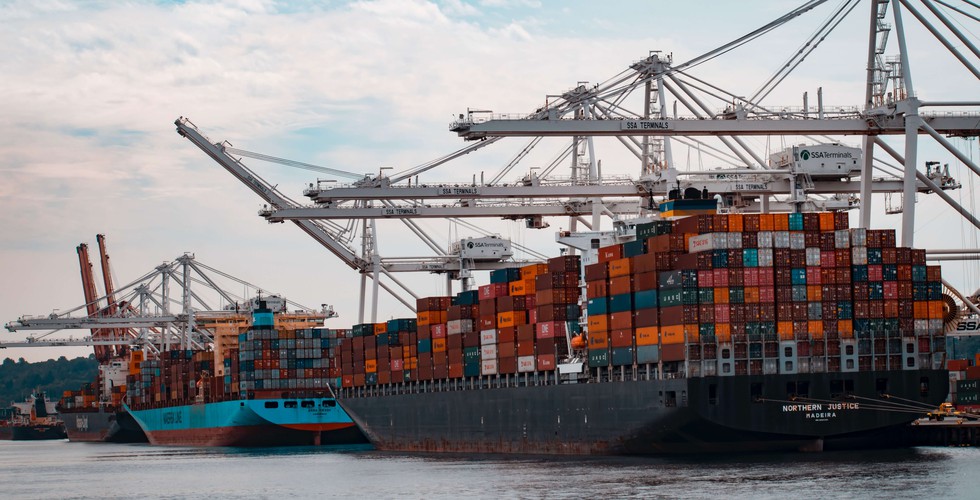The most known international cargo shipping story that even became a meme finally reached its end when a gigantic container ship the Ever Given was successfully removed from the Suez Canal in Egypt.
This blockade that lasted almost an entire week already has a huge impact on the economy and will be affecting it even more - approximate money losses is hundreds of millions (or even billions) of dollars. The even more sad part is that the Ever Given incident is only the most recent and most known one in the long chain of the shipping problems that the coffee industry faced this year.
Recently, Bloomberg published a story focused on coffee about the "supply chain nightmare" the coffee industry facing because of the constant deficit of shipping containers caused by the pandemic and became even worse in the last months. "The supplies of coffee in the US are getting low and wholesale prices are rising because of a worldwide shortage of shipping containers which changed the entire food trade industry."
With Bloomberg analyzing and describing the shipping problem for the coffee industry as a whole, DCN brought their part and reached out to companies that specialize mostly in specialty coffee sales.
"It's pretty normal to sometimes have some sort of container shortage, most notably in the 'peak' months during the year. But today's situation is totally different - it's systemic and international. Such a disaster is caused by a combination of things: the containers that can overstay in trans-shipment ports on the other half of the world; the ships that no longer stop in previously scheduled routes; increased offloading times at destination ports, etc. We have never faced anything like this before," said Jorge Cuevas, Chief Coffee Officer at Portland, Oregon-based Sustainable Harvest Coffee Importers to DNC.
Max Hurd, SVP of sourcing for Minneapolis-based green coffee company Cafe Imports mentioned that "there is much more instability in global shipping now than there was before the pandemic."
Despite that, according to Hurd, the company doesn't experience huge price volatility or stock problems for US buyers. The only exclusion is coffees shipped from Papua New Guinea and Indonesia. Nadine Rasch, director of Guatemala-focused coffee trading company Primavera Coffee, says that shipping problems have a negative effect on both sellers and buyers.
"There is a lot of shipping disruption this year - much more vessels being canceled or changed schedules than in the past. We still manage to get our products in time, but it requires a lot of logistical work that is really time-consuming for our small team. Simply put, it's just so much harder to make sure coffee arrives in a port on time than it was before," Rasch added.
Effects on Roasters
Experts believe that a lot of factors other than shipping influencing global coffee prices, such as reduced production in Brazil which happened because of the biennial cycle and long periods of drought, high customer demand for coffee, exchange rate changes and a variety of other macroeconomic factors. All of this can affect prices for all specialty coffee roasters, big and small.
"This whole situation brings a lot of challenges to all roasters across the world. And let's not forget about all the problems that past year's pandemic already created. All of this sums up, making business much harder," said Rasch.
Moreover, according to Sustainable Harvest’s Cuevas, as coronavirus-related restrictions will be eased customer demand will increase, making already hard supply issues even more pressing.
"Making proper planning and logistics is number one priority - it is only way viable to simultaneously manage high customer demand expectations from economics reopening and low supply with constant logistic problems," suggested Cuevas.
Hurd explains that for the specialty market ocean freight costs making only a small percentage of the total price of green coffee sold to roasters. Even doubling of ocean freight costs would raise the roaster's coffee price by something around 5-10 cents per pound. Luckily, most shipping lanes haven't seen such growth in prices. The only exception is the West Coast (USA) because it is filled beyond capacity with containers coming from Asia.
Effects on Producers
Coffee traders expecting that problems with shipping would often delay farmers' payment. "Shipping disruption means they can't get their product out of the country in time and must wait for cash for much longer because payments often are made only when cargo is already in a container and loaded on a vessel," told Cafe Imports’ Hurd during the interview.
Some exporters trying to buy coffee for a low price and pledge to pay the producer more when a product is sold. Although these prices can be pretty appealing for farmers, such an approach creates a lot of uncertainty for the farmers because they don't actually know when they will receive their payment.
"In today's world producing, processing and handling coffee is harder and pricey than ever before. Lockdowns and other quarantine restrictions have been realized properly at the source, but they certainly have some consequences," said Cuevas.
Most people involved in the coffee business expect problems with shipping to continue for at least a period of months, but of course, there is no certainty when it comes to evaluating a year-long pandemic.
"Nothing set in stone yet, of course - things can change for better or worse. But if shipping problems will become even bigger, I can imagine that we would get much more news coverage about this problem," sums up Hurd.



